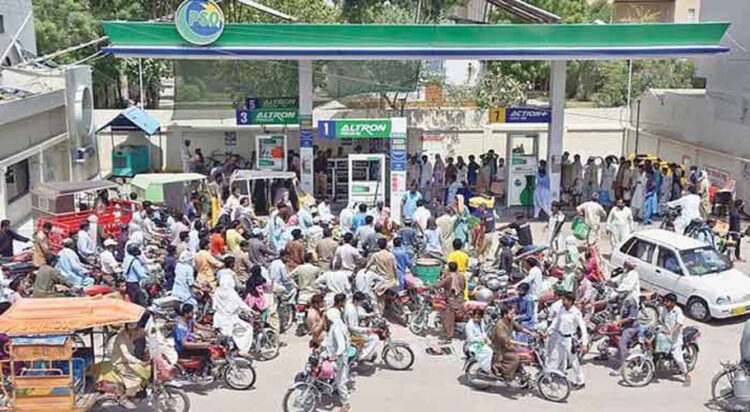Pakistan is likely to face another rise in petroleum prices starting January 16, with an increase of up to 3 rupees per liter for both petrol and diesel, according to local media reports. This expected price hike follows the surge in global crude oil prices, which have reached their highest levels in nearly three weeks.
The price increase is attributed to recent disruptions in the global oil supply, coupled with concerns over rising energy demand. Additionally, while there has been no major change in Pakistan’s exchange rate, the adjustment in oil prices could result in a significant rise in the cost of petroleum products in the coming days.
Brent crude oil futures, which serve as a global benchmark, rose by 0.35% to $77.32 per barrel, marking the third consecutive weekly increase. This uptick follows a sharp decline in oil prices to a three-year low, triggering market concerns about supply and demand.
In December 2024, the Pakistani government had already raised petroleum prices for the start of the year. Petrol increased by 0.56 rupees per liter, reaching 252.66 rupees, while high-speed diesel (HSD) saw a more substantial rise of 2.96 rupees per liter, bringing its price to 258.34 rupees.
The Treasury Division is expected to announce new prices after obtaining approval from Prime Minister Shehbaz Sharif and the Finance Minister. Industry sources suggest that the prices of petrol and diesel could see an increase of up to 3 rupees per liter, reflecting the fluctuations in global oil markets.
On the international front, the global oil market experienced a brief dip on Tuesday, with Brent crude futures falling by 0.37% to $76.02 per barrel, and U.S. West Texas Intermediate (WTI) dropping by 0.45% to $73.23 per barrel. However, this came after a period of consistent price hikes, as oil prices had surged over the past week, reaching their highest points since October. These gains were fueled by expectations of fiscal stimulus in China to address its struggling economy.
Additionally, a stronger U.S. dollar has contributed to rising oil prices, as it makes crude oil more expensive for holders of other currencies. Geopolitical concerns, particularly in Syria, and uncertainty surrounding U.S. leadership are also playing a role in the ongoing volatility of oil prices.





































